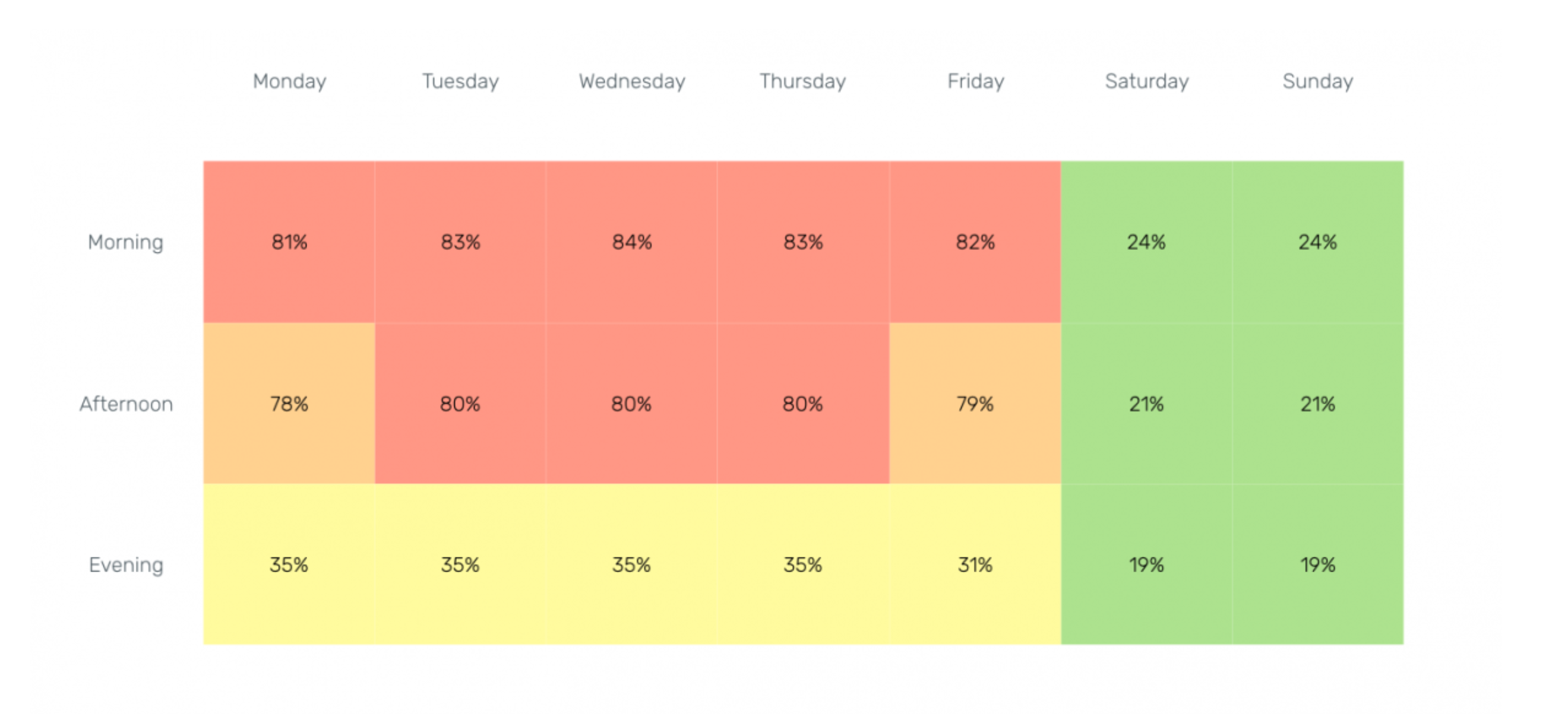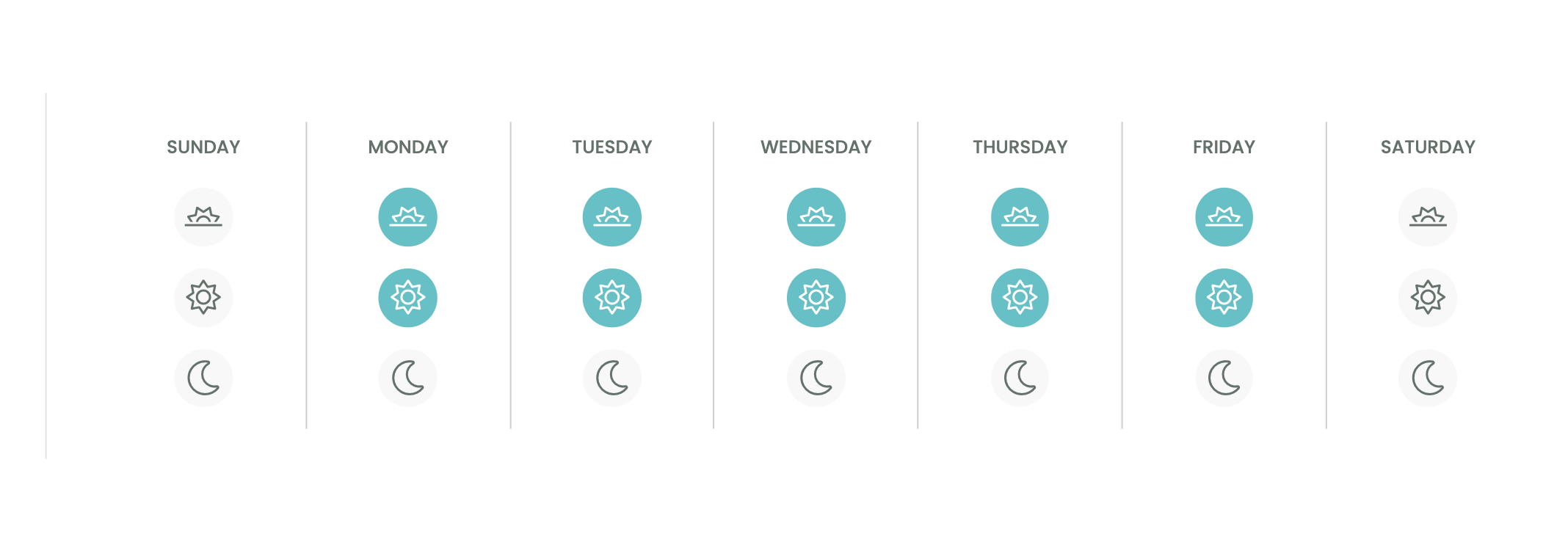Unlike companies, freelancers aren’t always shackled by the constraints of a Monday to Friday working week. Instead, a large contingent of freelancers prefer to mix up when they work by swapping week days for evenings and weekends.

In an age where there is increasing pressure on companies to deliver more with less time and resource, could this be an under-utilised area of freelancing to help drive up productivity and hit deadlines?
More so than full time employees, freelancers can shape their week by balancing what works best for their personal and professional situation. After all, flexibility and control of time are core drivers for why people choose to freelance. Analysis of our freelance member base confirms this with a third of freelancers open to working in the evening and a fifth open to working weekends.
Periods of the week freelancers are open to work:

Additionally, when some freelancers are not required to work standard business hours, they often choose to get the work done more efficiently by compressing their working week into longer but fewer days. This makes a ton of sense as it gives freelancers more flexibility in how they spend the rest of the week, whether it being for personal time or other jobs.
This flexibility strikes me as an interesting opportunity for companies to leverage. Ultimately a freelancer’s flexibility could easily transfer to increasing a company’s flexibility and productivity.
Instead of a company having to plan projects based on constraints of Monday to Friday 9-5, they can start to consider how projects (or parts of projects) can be delivered in different more efficient ways. Projects can in theory be turned around quicker through evening work, while overall weekly productivity could increase by 2 days with freelancers being engaged to work weekends. It also allows for companies to create a continuous flow of work in a similar way to what offshore partners provide.
Yet for many companies and in particular agencies, working with freelancers typically means bringing them into the office having them working alongside their team lead. After 17 years in agencies I know as well as anyone that in many instances this is necessary. But not all…there are plenty of opportunities where you simply need a good brief and open lines of communication. Plus, with the proliferation of amazing online tools that support remote working (e.g. Slack and Asana), it has never been easier to make this happen.
In this day and age companies have to find ways to do more with less time and resources. Overflow work, a tight deadline or a project dropped in the lap can all potentially be supported by bringing in a freelancer who is flexible about when they work. Creating a better end result for both the project and the sanity of your own team.
Yet, realistically a big piece to overcome is building the trust between the company and freelancer who is working remotely and outside work hours. Because of this we always recommend spending time ahead of a likely urgent freelance needs to handpick, meet and test the freelancers first. We’d also recommend building a pool of trusted freelancers so that you have more than one to turn to.
The good news is that Companies using &FRIENDS can see the periods in the week that a freelancer is typically available to work.

We also recommend posting a gig with these timing requirements to ensure all possible Freelancers can review and apply. Once posted you can easily build a shortlist and either book your preferred freelancer or add them to your talent pool for future access when you need them.

